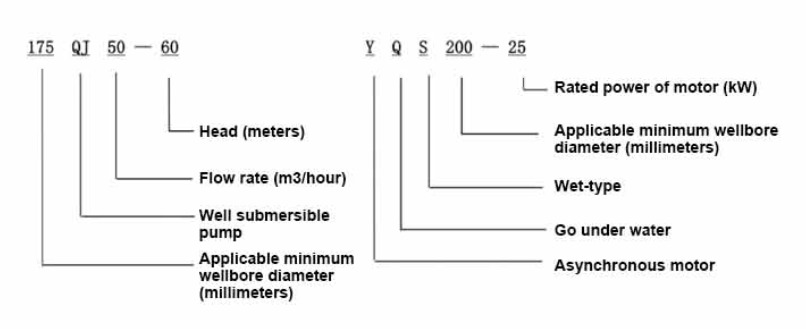Nov . 05, 2024 04:03 Back to list
submersible water well pump
Understanding Submersible Water Well Pumps A Comprehensive Guide
Submersible water well pumps are an essential component in the world of water extraction and management. Known for their efficiency and reliability, these pumps have become a staple in both residential and industrial applications. In this article, we will explore the mechanics, benefits, and maintenance of submersible water well pumps, helping you understand their critical role in water supply systems.
What is a Submersible Water Well Pump?
A submersible water well pump is designed to operate fully submerged in water. Unlike traditional pumps that are installed above ground, submersible pumps are placed deep within the well, typically below the water level. This unique design allows them to push water to the surface through a series of pipes, making them particularly effective in drawing water from underground sources, such as aquifers.
How Do They Work?
The operation of a submersible pump is relatively straightforward. It consists of a motor, a pump impeller, and a discharge head. The motor is located at the bottom of the pump and uses a sealed, waterproof casing to protect its electrical components. When activated, the motor drives the impeller, which creates a difference in pressure, pulling water into the pump and forcing it through the discharge head and up to the surface.
The efficiency of submersible pumps comes from their ability to handle considerable depths. Because they are submerged, these pumps can take advantage of the natural pressure of the water above them, requiring less energy to lift water to the surface compared to surface pumps. This design not only saves energy but also enhances their longevity and reduces the likelihood of cavitation—a phenomenon that can cause damage to pumps.
Benefits of Submersible Pumps
1. Efficiency Submersible pumps are highly efficient, which translates to lower energy costs over time. Their design minimizes friction loss, allowing them to deliver water more effectively.
2. Durability Built to withstand submersion, these pumps are generally more durable than surface pumps. They are made from corrosion-resistant materials and designed to operate in harsh environments.
3. Versatility Submersible pumps can be used for a variety of applications, including irrigation, drinking water supply, sewage discharge, and even in swimming pools. Their adaptability makes them suitable for both residential and commercial use.
submersible water well pump

4. Reduced Noise Because submersible pumps are located underwater, they operate quietly compared to above-ground pumps. This is particularly beneficial in residential areas where noise levels are a concern.
5. Greater Lifespan With proper maintenance, submersible water well pumps can last for many years. Their submerged position protects them from external environmental factors that can lead to wear and tear.
Maintenance Tips
Despite their durability, submersible water well pumps require routine maintenance to ensure optimal performance. Here are some essential tips
- Regular Inspections Check the power supply and wiring connections periodically for signs of wear or corrosion. Ensure that the electrical components are dry and secure.
- Watch for Changes in Performance Monitor any fluctuations in water flow or pressure, as these can indicate potential issues within the pump.
- Clear Debris Ensure the area around the well is clear of debris. Sediment and other particles can damage the pump and affect its efficiency.
- Professional Service Consider scheduling annual inspections with a qualified technician. They can perform a thorough check of the pump system and identify any potential problems before they become significant issues.
Conclusion
Submersible water well pumps play a vital role in modern water management systems. Their efficiency, durability, and versatility make them an excellent choice for a wide range of applications. By understanding how they work and implementing proper maintenance practices, you can ensure that your submersible pump operates efficiently for years to come. Whether it's for agricultural needs, residential water supply, or industrial applications, investing in a high-quality submersible water well pump is a decision that pays off in both reliability and performance.
-
Submersible Water Pump: The Efficient 'Power Pioneer' of the Underwater World
NewsJul.01,2025
-
Submersible Pond Pump: The Hidden Guardian of Water Landscape Ecology
NewsJul.01,2025
-
Stainless Well Pump: A Reliable and Durable Pumping Main Force
NewsJul.01,2025
-
Stainless Steel Submersible Pump: An Efficient and Versatile Tool for Underwater Operations
NewsJul.01,2025
-
Deep Well Submersible Pump: An Efficient 'Sucker' of Groundwater Sources
NewsJul.01,2025
-
Deep Water Well Pump: An Efficient 'Sucker' of Groundwater Sources
NewsJul.01,2025
-
 Submersible Water Pump: The Efficient 'Power Pioneer' of the Underwater WorldIn the field of hydraulic equipment, the Submersible Water Pump has become the core equipment for underwater operations and water resource transportation due to its unique design and excellent performance.Detail
Submersible Water Pump: The Efficient 'Power Pioneer' of the Underwater WorldIn the field of hydraulic equipment, the Submersible Water Pump has become the core equipment for underwater operations and water resource transportation due to its unique design and excellent performance.Detail -
 Submersible Pond Pump: The Hidden Guardian of Water Landscape EcologyIn courtyard landscapes, ecological ponds, and even small-scale water conservancy projects, there is a silent yet indispensable equipment - the Submersible Pond Pump.Detail
Submersible Pond Pump: The Hidden Guardian of Water Landscape EcologyIn courtyard landscapes, ecological ponds, and even small-scale water conservancy projects, there is a silent yet indispensable equipment - the Submersible Pond Pump.Detail -
 Stainless Well Pump: A Reliable and Durable Pumping Main ForceIn the field of water resource transportation, Stainless Well Pump has become the core equipment for various pumping scenarios with its excellent performance and reliable quality.Detail
Stainless Well Pump: A Reliable and Durable Pumping Main ForceIn the field of water resource transportation, Stainless Well Pump has become the core equipment for various pumping scenarios with its excellent performance and reliable quality.Detail
